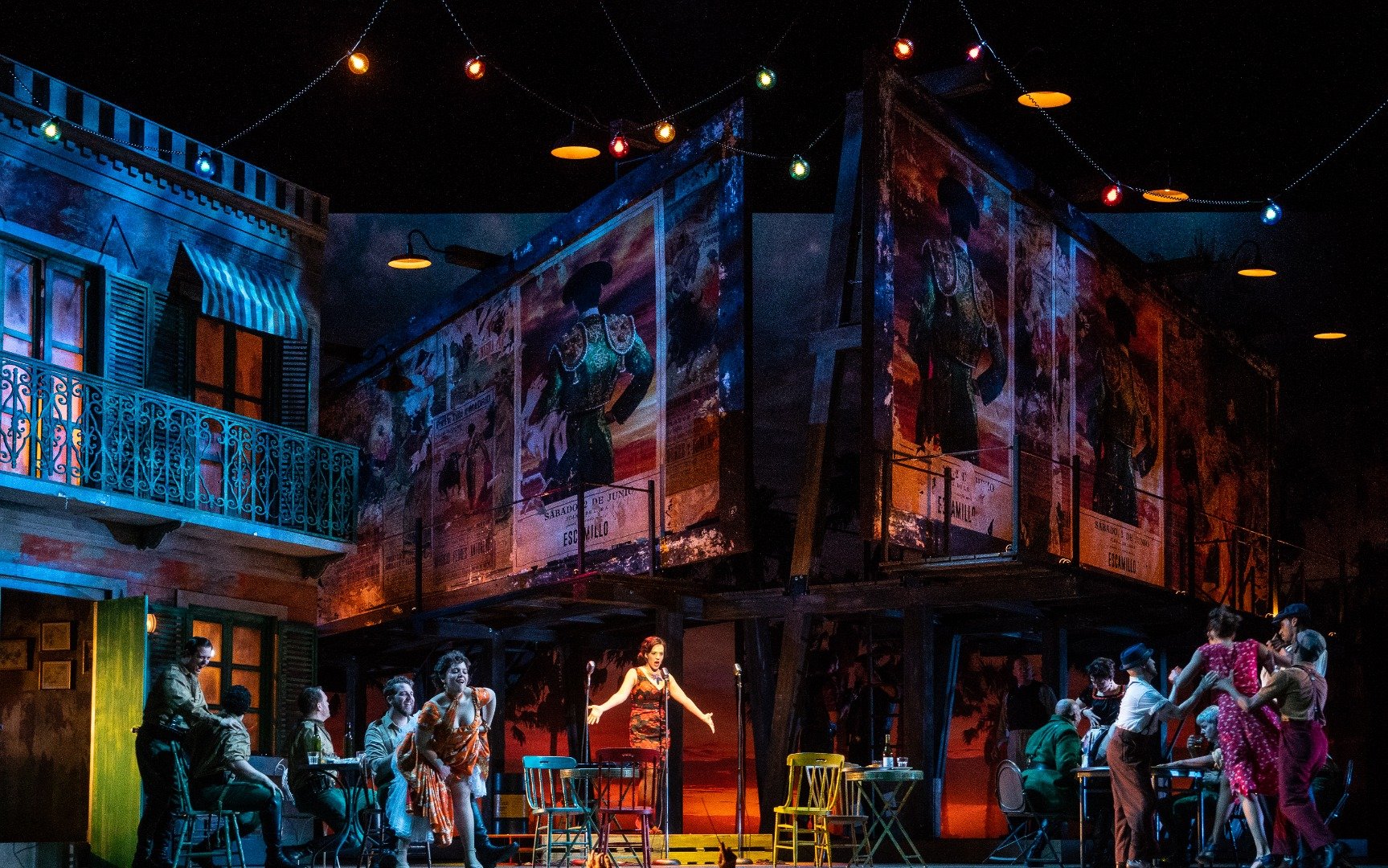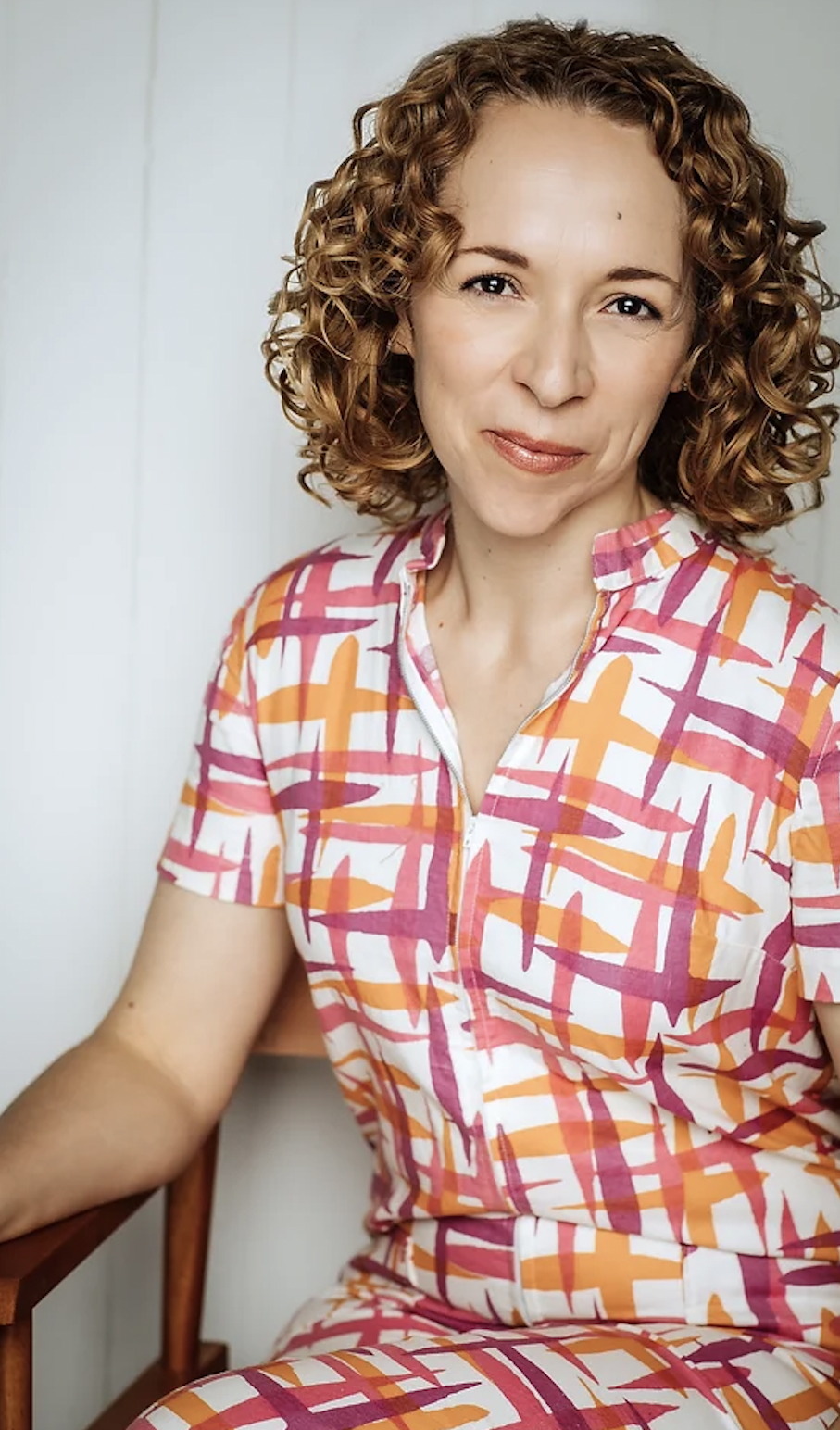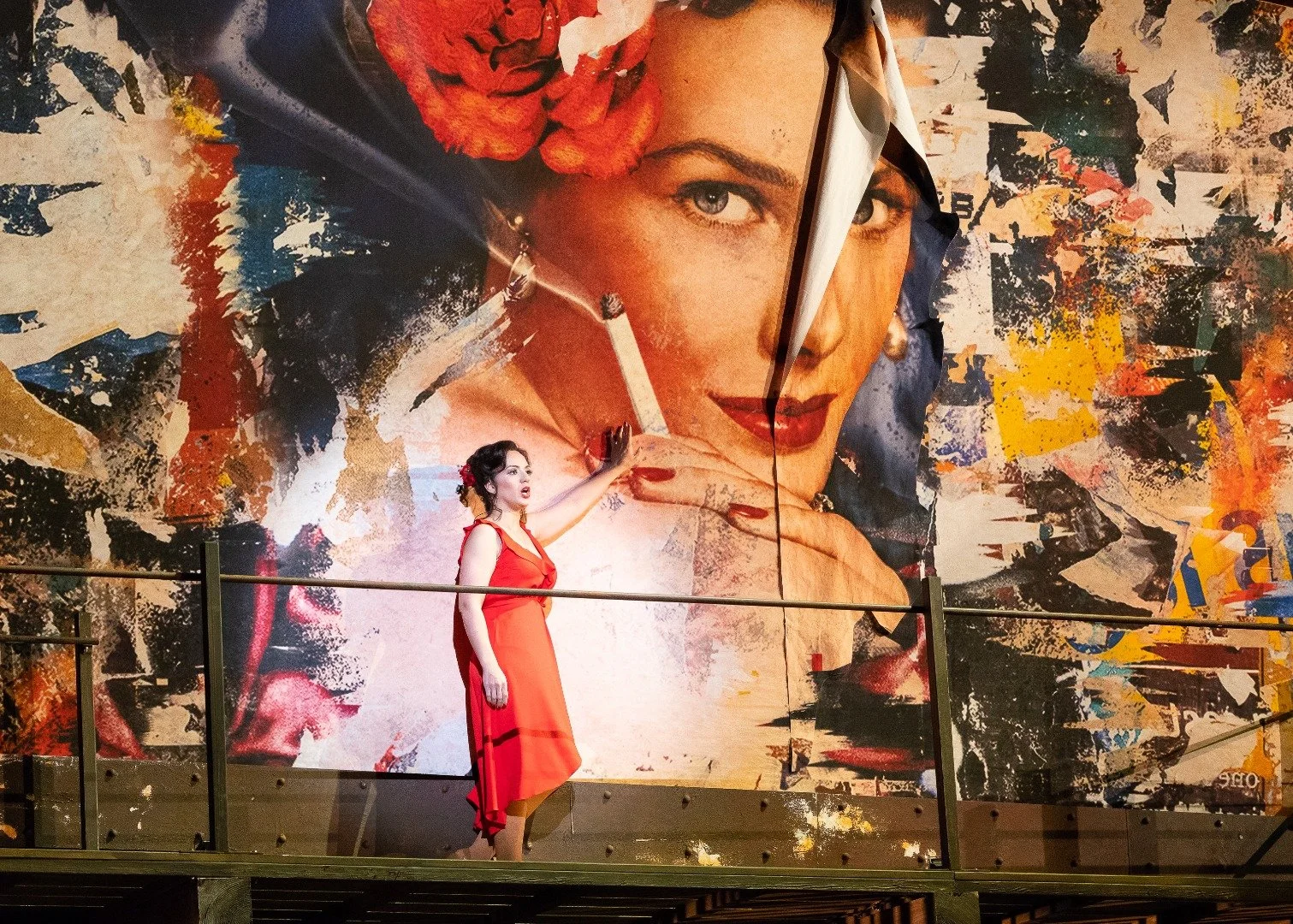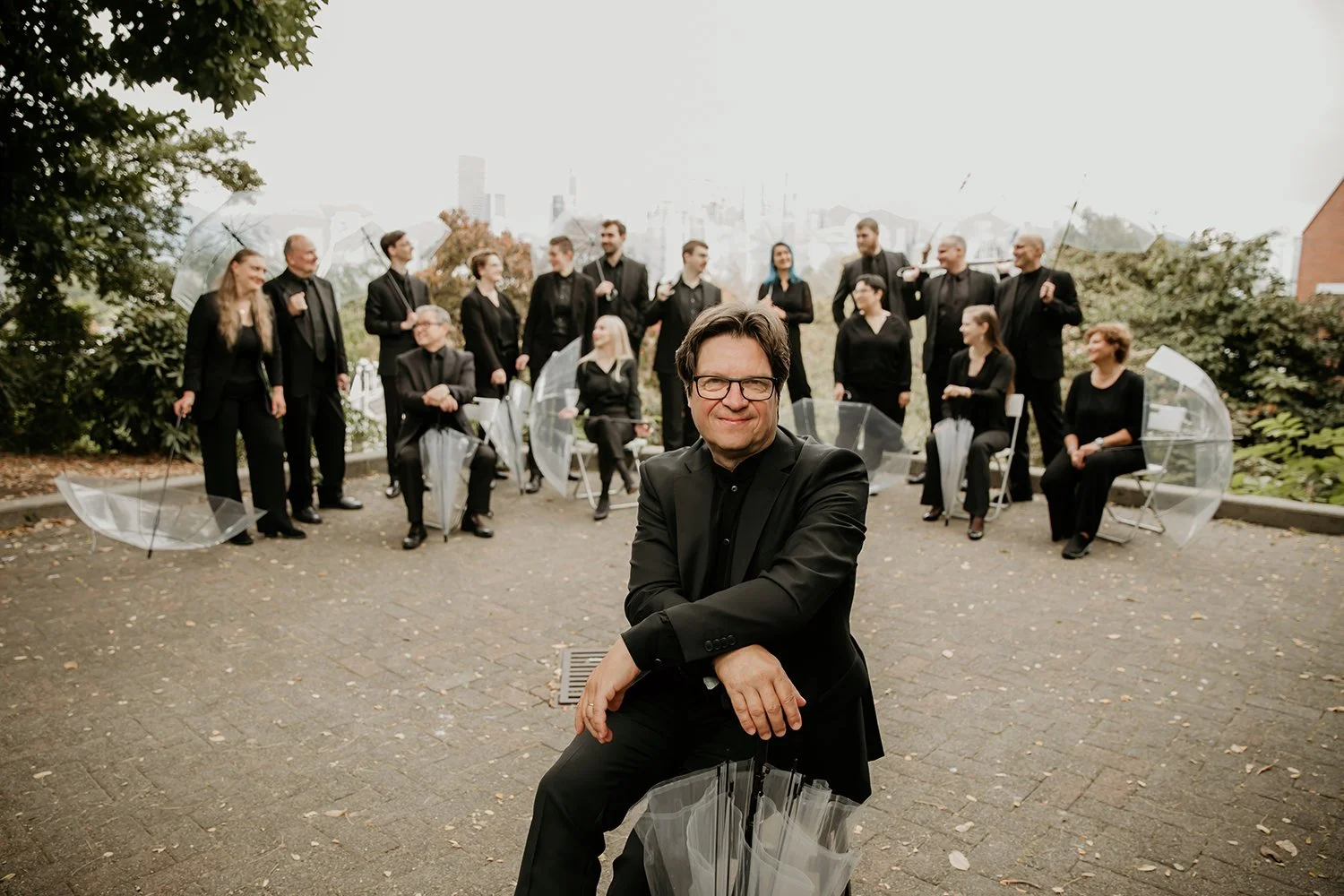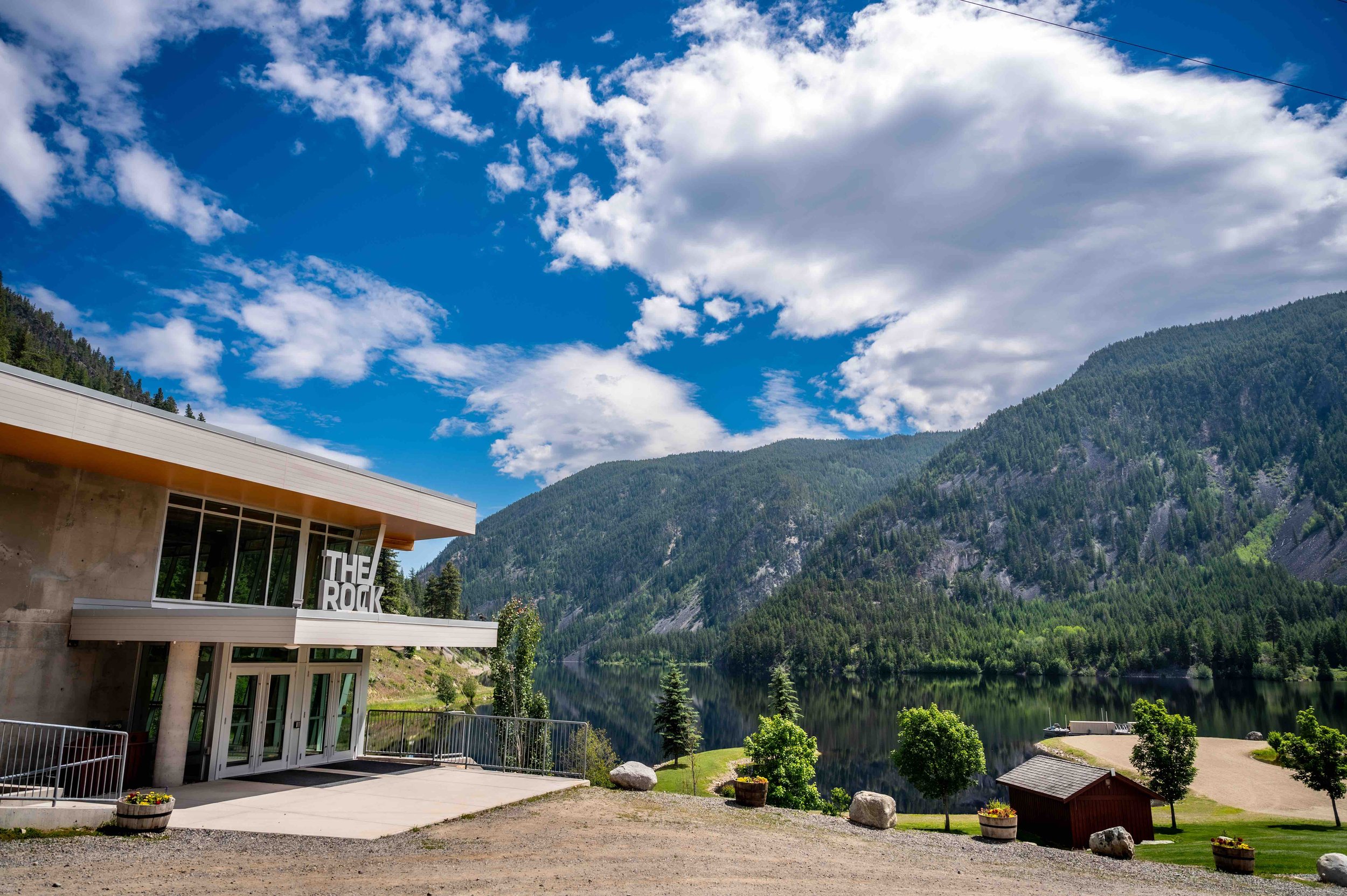Director Rachel Peake reveals the complexities of Carmen's titular femme fatale at Vancouver Opera
“How does a woman with very little means achieve freedom?” the artist asks in massive-scaled new production
This Carmen is moved to the 1950s. Photo courtesy of Opera Philadelphia
Vancouver Opera presents Carmen at the Queen Elizabeth Theatre on April 27 and 28, and May 2, 4, and 5, at 7:30 pm
CARMEN, THE ICONIC heroine of Georges Bizet’s opera, has attracted a wild range of descriptors over the past century and a half—some positive, some scathing. Back when the now-beloved work debuted in 1875, the smoking, drinking seductress was simply too much for critics, who judged her “vulgar” and “contemptible”; Le Siècle complained specifically about her “hip thrusts”.
In more recent eras, the adjectives have tended more toward “hot-tempered and coldhearted”, or even “fearless” and “free thinking”. Today, the fierce femme fatale is often seen as an icon of liberation, even feminism, in her quest for sexual freedom. On a more empathetic and human level, she’s a woman who needs to feel loved.
You’ll see some of those complexities in the Carmen who will grace the Queen Elizabeth Theatre stage, as director Rachel Peake brings Bizet’s hugely popular piece to the Vancouver Opera this week. But there’s nuance to that more powerful depiction of Carmen, who’s played, on alternating nights, by mezzo-sopranos Sarah Mesko and (in a recent cast change due to illness) Ginger Costa-Jackson.
“I think she’s perceived better today than when she was first written—and it’s one of the few cases of that in opera,” the busy Vancouver stage director observes on a break before heading into rehearsals at the VO’s East Side headquarters. “I see this character of a woman who is from a marginalized community, she’s from a Romani community, and she doesn’t have a lot of money or those things that ground a person in society. And so she has to use what she has at her disposal—which is her wit, her beauty, the way she engages with people, her ability to dance in order to get ahead in life—to support her primary goal, which is freedom; to live a life of freedom,” she adds. “So, how does a woman with very little means achieve freedom?”
In the opera, somewhat-naive soldier Don José falls hard for Carmen, and she for him; but by the second act, she’s grown tired of him, just as he obsesses over her more. So when she turns her attentions to the swaggering matador Escamillo—spoiler alert—it doesn’t end well.
Director Rachel Peake
Looking at the story today, Carmen echoes some of the issues of violence against women and consent that we’re grappling with 150 years later. “As a woman in 2024, I have a great deal of empathy for her,” Peake says. “She may love him at one time, but then he becomes controlling. And ultimately she’s murdered because of that.
“We have a dual cast, two Carmens, and what we really keep coming back to is, What is driving her action?” she adds. “In the final act she is being cruel in this moment. But the goal of what she’s doing is trying to extricate herself from this relationship. So I see her as this woman in this challenging position.”
And so, Peake and her two mezzos are finding a balance between a story of a woman trying to extricate her life from the men around her, and a deeply human story of love—or, as the director puts it, “of people who may seek love in mistaken ways.”
It all takes place on stunning, atmospheric sets, borrowed from Opera Philadelphia, that position the production in the postwar early 1950s (instead of its original 19th-century Seville). Peake describes it as “Spain-like, but with some Cuban influences. It feels like a Latinx, hot climate place.” Giant, peeling billboards and dive cafes help give the air of a place coming out of a challenging economic time, with soldiers milling about the streets. Amid them, matadors stand out in gaudy, vibrant colours, a mix of sports hero and movie star, according to Peake. “There’s that performative glamour but a dangerous occupation—this idea of a community that celebrates bloodshed. A source of entertainment is to watch a creature be killed, and that’s very much a commentary on a society.”
The universality of that commentary might in part explain the enduring power of Carmen—and why it will pack the Queen E. for an extended five-night run.
“It truly is a story that exists in a certain time, but is applicable to experiences we have today,” Peake says. “Also, it has this huge fieriness in it, this passion and violence.”
And then, of course, there is Bizet’s instantly recognizable, Spanish-inflected score (the “Habanera” song alone has been heard everywhere, from Doritos commercials to The Muppets), conducted here by Leslie Dala. “It has so many musical numbers that are part of the zeitgeist,” Peake remarks. “People that don’t know opera know these tunes.”
Peake, whose many jobs these days include artistic director of London, Ontario’s fantastic Grand Theatre, has worked across many large-scale productions—including a massive Macbeth for Calgary Opera last year, and The Pearl Fishers at the VO in 2022. So it says something that Carmen ranks as one of the most massive operas Peake has ever helmed—literally and figuratively.
“Any of these bigger classic operas that are so well-known carry a lot of weight,” she admits. “It’s a big story with a big social message. It has a big chorus of 40, a big cast, and a child’s chorus of 20. We have these rehearsals of 70 or 80 people. Then there are fights and intimacy and choreography. It has all the bells and whistles, let’s put it that way!” ![]()
Carmen’s peeling billboards. Photo courtesy Opera Philadelphia



